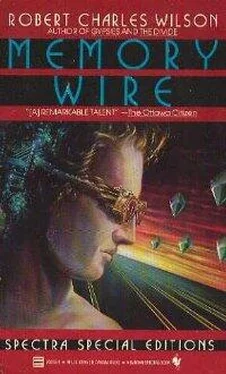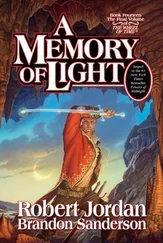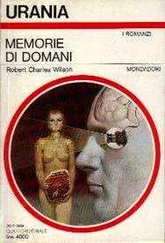Robert Wilson - Memory Wire
Здесь есть возможность читать онлайн «Robert Wilson - Memory Wire» весь текст электронной книги совершенно бесплатно (целиком полную версию без сокращений). В некоторых случаях можно слушать аудио, скачать через торрент в формате fb2 и присутствует краткое содержание. Год выпуска: 1987, ISBN: 1987, Издательство: Bantam Spectra, Жанр: Фантастика и фэнтези, на английском языке. Описание произведения, (предисловие) а так же отзывы посетителей доступны на портале библиотеки ЛибКат.
- Название:Memory Wire
- Автор:
- Издательство:Bantam Spectra
- Жанр:
- Год:1987
- ISBN:978-0-553-26853-9
- Рейтинг книги:4 / 5. Голосов: 1
-
Избранное:Добавить в избранное
- Отзывы:
-
Ваша оценка:
- 80
- 1
- 2
- 3
- 4
- 5
Memory Wire: краткое содержание, описание и аннотация
Предлагаем к чтению аннотацию, описание, краткое содержание или предисловие (зависит от того, что написал сам автор книги «Memory Wire»). Если вы не нашли необходимую информацию о книге — напишите в комментариях, мы постараемся отыскать её.
Memory Wire — читать онлайн бесплатно полную книгу (весь текст) целиком
Ниже представлен текст книги, разбитый по страницам. Система сохранения места последней прочитанной страницы, позволяет с удобством читать онлайн бесплатно книгу «Memory Wire», без необходимости каждый раз заново искать на чём Вы остановились. Поставьте закладку, и сможете в любой момент перейти на страницу, на которой закончили чтение.
Интервал:
Закладка:
But it was a progression of logic he could not allow, and he thrust it from his mind. The oneiroliths were evil; there was no other possibility.
“Just trying to clarify our position,” the team leader said.
“I understand,” Oberg told him.
He woke from the reminiscence as if it had been a bad dream.
The aircraft was circling now, the sky lightening with dawn. The uniformed peacekeepers were mostly asleep. Oberg imagined he could feel it coming nearer—the source of the virus, the center of the infection. He did not think the analogy was unfair. It bred like a virus; it insinuated itself into the body—or at least the mind—like a virus. Like a virus, it had purposes of its own. Not human purposes.
He peered out the window and saw the dust of Pau Seco, pale in the morning light, rising from a canyon in the jungle.
CHAPTER 8
1. “It looks like hell,” Keller said.
“It is hell,” Ng said blithely. “But this isn’t the worst of it.”
They had come in along the broad highway from Cuiaba. Ng drove a battered Korean semi full of refrigerated meat —it was his day job, he said. He ran supplies to the box cities full of hopeful foraos and unlucky formigas. It paid okay, he said. He did not say what his night job was.
It was a long run from Cuiaba. Teresa and Byron napped in the rear of the huge cab; Keller sat up with Ng. Ng didn’t talk much but Keller was able to confirm his suspicion that the man had been a soldier, one of the Vietnamese commandos who had fought in the Pacific Rim offensive. Keller had always been just a little scared of the Vietnamese. They were culled soldiers, tagged at birth and raised in the big military creches outside Danang. Their bodies produced chronically high levels of serotonin and norepinephrine, chronically low levels of monoamine oxidase. They were, in other words, aggressive, domineering, and desperate for excitement. It was there in the way Ng drove his rig: too fast, but with a tight, rapt smile. And when he turned a corner and the sleeve rode up his arm, Keller recognized the faint blue double-X etched under the skin—the Danang tattoo.
They approached Pau Seco a little after dawn. Keller saw the plume of dust on the horizon feathering toward the south. “Pau Seco?” he said, and Ng nodded. Within an hour they had reached the outskirts of the old town, the endemic poverty of Brazil but on a grander scale. Shacks rolled up and down these bread-loaf hills, all nearly identical, random configurations of corrugated tin, tarpaper, cardboard. Keller gazed at the emaciated men gathered by the road, who returned his gaze without curiosity as the big rig rumbled past.
“Formigas,” Ng said. “Unlicensed miners. Most of them are not even that, actually. They come in the hope that they’ll be hired into the mine. The garimpeiros are the men who own the land. They hire the formigas to do their work for them. For wages, or more likely a share of the income. If there is ever any income. But there are more of these people than there is work for them. Most of them spend their days in the laborers’ compound hoping someone else dies. It’s the best way to get work.”
And then they topped a rise and Keller saw the mine itself.
Pau Seco, he thought. The ugly center of the world.
Ng pulled the truck into the bay back of a cinderblock building and climbed out, dusting his shorts with his small hands. He led Keller to the crest of a hill and gestured almost proudly at the pit of the mine. “Hell,” he said.
It might have been hell. It was an open canyon of red mud and white clay so immense that the trees on the far rim were gray with distance. Keller did a professional pan, sweeping the mine east to west so that this vista could be reclaimed from his AV memory. There was so awesomely much of it.
“This was a plain once,” Ng said. “A plain covered with jungle. Then the garimpeiros came, and the foreigners, and the government to take their twenty-five percent. When they burned off the trees, the ashes fell for miles around.”
It was a vista from another century, formigas creeping up the inclines like the ants they were named for, deafening with the clangor of hand tools and human voices. This was how the Aztecs must have mined their gold, Keller thought, and he felt a moment of giddy vertigo: an abyss here, too, of time.
Ng occupied a shack in the old town of Pau Seco with a view commanding the mine and the sprawl of the workers’ compound. After nightfall the old town came alive. The town of Pau Seco, Ng explained, was a concentration of whorehouses, banks, and bars. Every day one or two of these thousands of garimpeiros would come into money; the town existed to extract it from them. Periodically there was the sound of gunfire.
Keller sat out on the wooden vestibule of the shack, drinking cautiously from a bottle of white cachaca and listening as Ng explained the trouble they were in.
His English was easy, flat, American in inflection. “I don’t know Cruz Wexler.” He shrugged. “Cruz Wexler means nothing to me. Two months ago I was approached by a man, he said he was a surveyor working for SUDAM. A Brazilian. He had SUDAM credentials, he had a nice suit. He said there was a buyer interested in acquiring a deep-core stone and was it possible I could set this up?” He stretched out across the three risers that connected his wooden shack to the mud, plucked at a hole in his T-shirt. “Well, it isn’t easy. Security is very tight. They named a figure, the figure was attractive, I said I would do what I could.”
“It’s arranged?” Byron asked hopefully.
“You should have the stone tomorrow. The thing is best done quickly. But you have to understand… you came here as couriers, right?”
Byron said, “We take the stone, we carry it out of the country…”
“Nobody told you it might be dangerous?”
“We have documents—”
“Paper.” Ng shrugged. “If it was that easy, any forao with brains would be walking out of here wealthy.” He grinned. “There’s not much smuggling because the military is in charge. Mostly, you can do what you want in the old town. But the military is there, and they carry guns and they use them. The official penalty for the crime we’re discussing is death. What it means is summary execution. A trial would be”—and the smile widened—“very unusual.”
“Son of a bitch,” Byron said. “It’s a walk, he says, it’s a fucking vacation^. It’s a walk through the fucking cemetery is what it is!”
Teresa said quietly, “It’s all right.”
“He fucked us over!”
“Byron, please—”
“Goddamn,” Byron said. But he sat down. She turned to Ng. “If it’s so dangerous, why did you agree to get involved?”
Ng sat back, hugging his knees. “I’m easily bored,” he said.
2. Oh, but I can feel it now, Teresa thought.
In the midst of this brutality it was so close. She felt it like a pain inside her, like the poignancy of old loss, a kind of melancholy.
She lay in the darkness of Ng’s small shack, curled on a reed mat at the heart of the world.
Melancholy, she thought, but also—she could begin to admit it—frightening. She was not as naive as Byron seemed sometimes to think, but the mine had taken her by surprise … the brutality, the squalor of it, the lives that were lost here. It was not meant to be this way, she thought.
She sat up in the darkness. Through the paneless window she could see Pau Seco sprawling at the foot of this moonlit hill. Oil-can fires burned sporadically like stars in the darkness.
She thought of the Exotics, the winged people she had seen so often in her ’lith visions. She was not afraid of them; the impression of their benevolence was strong and vivid. But they were different. There was something essentially unhuman about them, she thought—something more profound than the shape of their bodies.
Читать дальшеИнтервал:
Закладка:
Похожие книги на «Memory Wire»
Представляем Вашему вниманию похожие книги на «Memory Wire» списком для выбора. Мы отобрали схожую по названию и смыслу литературу в надежде предоставить читателям больше вариантов отыскать новые, интересные, ещё непрочитанные произведения.
Обсуждение, отзывы о книге «Memory Wire» и просто собственные мнения читателей. Оставьте ваши комментарии, напишите, что Вы думаете о произведении, его смысле или главных героях. Укажите что конкретно понравилось, а что нет, и почему Вы так считаете.












